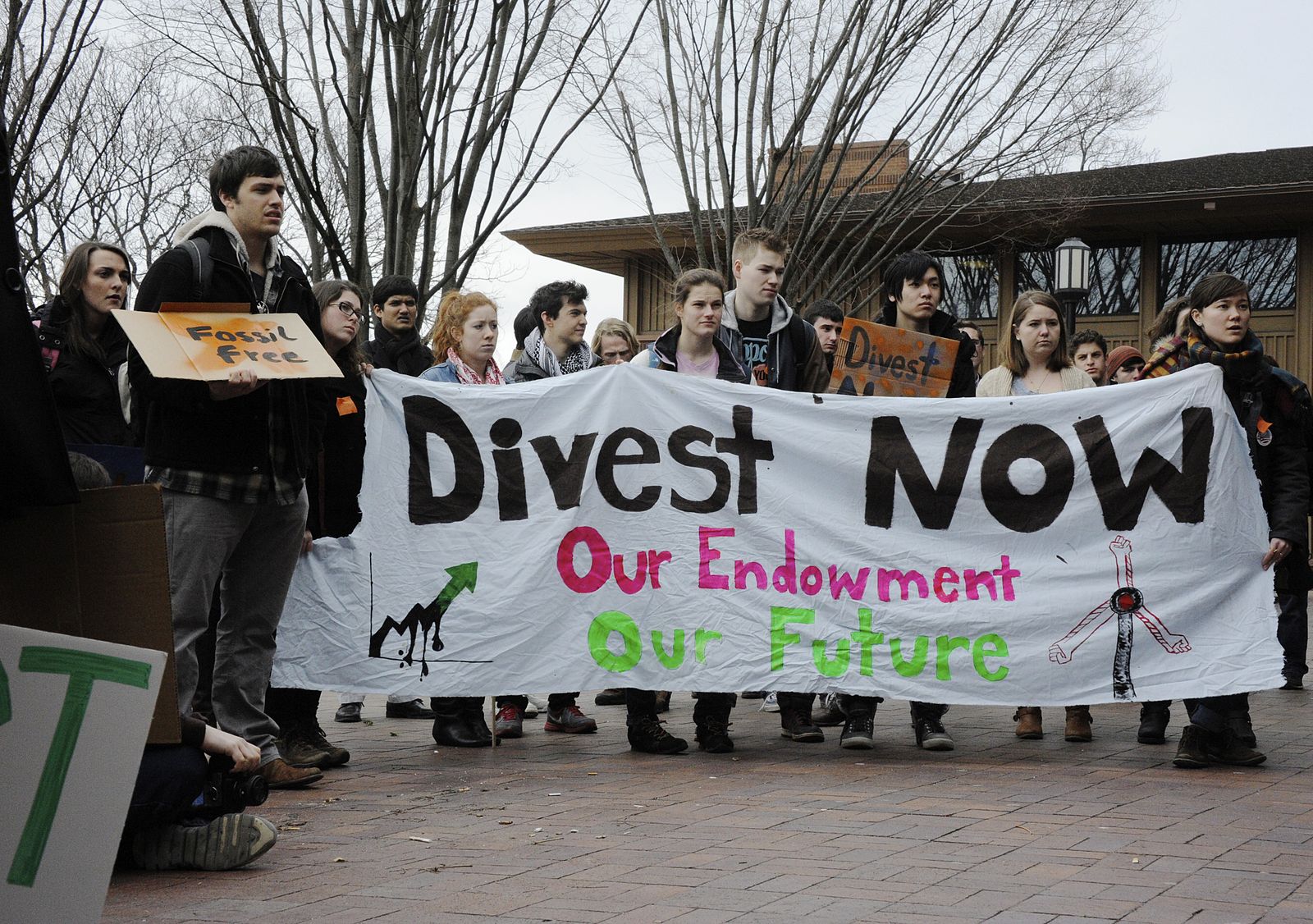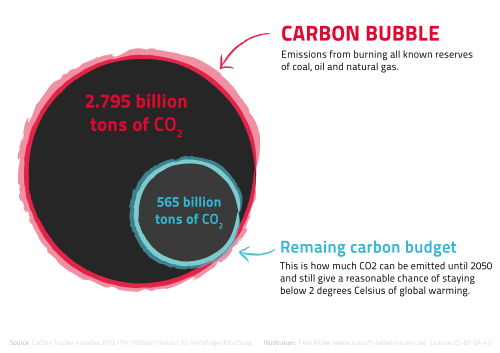How much is stopping destructive behaviour essential to creating a good Anthropocene?
Fossil Fuel divestment is a rapidly growing campaign aims to morally stigmatize the fossil fuel industry. Divestment is the opposite of investment, it is the removal of your investment capital from stocks, bonds or funds, and recently a global movement for fossil fuel divestment, also called disinvestment, is demanding that key people and organisations halt their investments in oil, coal and gas companies for both moral and financial reasons. These organisations include universities, religious institutions, pension funds, local authorities and charitable foundations. Previous divestment campaigns have targeted the tobacco and gambling industries and companies funding the violence in Darfur. Divestment is perhaps most well known for its role in the fight against apartheid in South Africa.
350.org, an international movement to limit climate change, began a campaign in 2012 called Fossil Free aimed at getting ‘institutions to immediately freeze any new investment in fossil fuel companies, and divest from direct ownership and any commingled funds that include fossil fuel public equities and corporate bonds within 5 years’. The goal is motivated by the IPCC assessment that all future carbon dioxide emissions must be less than 1,000 gigatonnes to avoid dangerous climate change, which is only 1/3 of known extractable fossil fuel of known reserves can be used.
The fossil fuel divestment campaign has multiple goals. While its main goal is to pressure fossil fuel companies and their regulators to leave fossil fuels in the ground. It also wants to pressure fossil fuel companies to greatly reduce their greenhouse gas emissions and governments to implement policies that reduce GHG emissions. The campaign has been increasingly successful. More than 2000 individuals and 400 institutions around the world have now committed to some form of fossil fuel divestment, including pension funds, foundations, universities, faith organisations and local authorities, that represent a total of over $2.6 trillion of investments (i.e. a smaller amount has actually been removed from investments) in Sept 2015, up from $52 billion in 2014.
University students & staff have targeted the investments of their universities. A recent high profile media campaigns by the Guardian has targeted the Bill & Melinda Gate Foundation and the Wellcome Trust. These campaigns focus on the contradictions between the institutions goals and the impacts of climate change. Divestment’s indirect impact is meant to be bigger than its direct impact via stigmatising the fossil fuel industry. Assessment of the campaign’s potential impact by Oxford’s Smith School of Enterprise & the Environment suggests that it could cause significant reduction in value of coal, gas and oil companies.
Divestment could continue to grow to involve more people, institutions and nations. Its bigger impact would be to change people’s value to live in a different way. If it is successful, the divestment campaign could also serve as a model for stopping other types of destructive behaviour.




